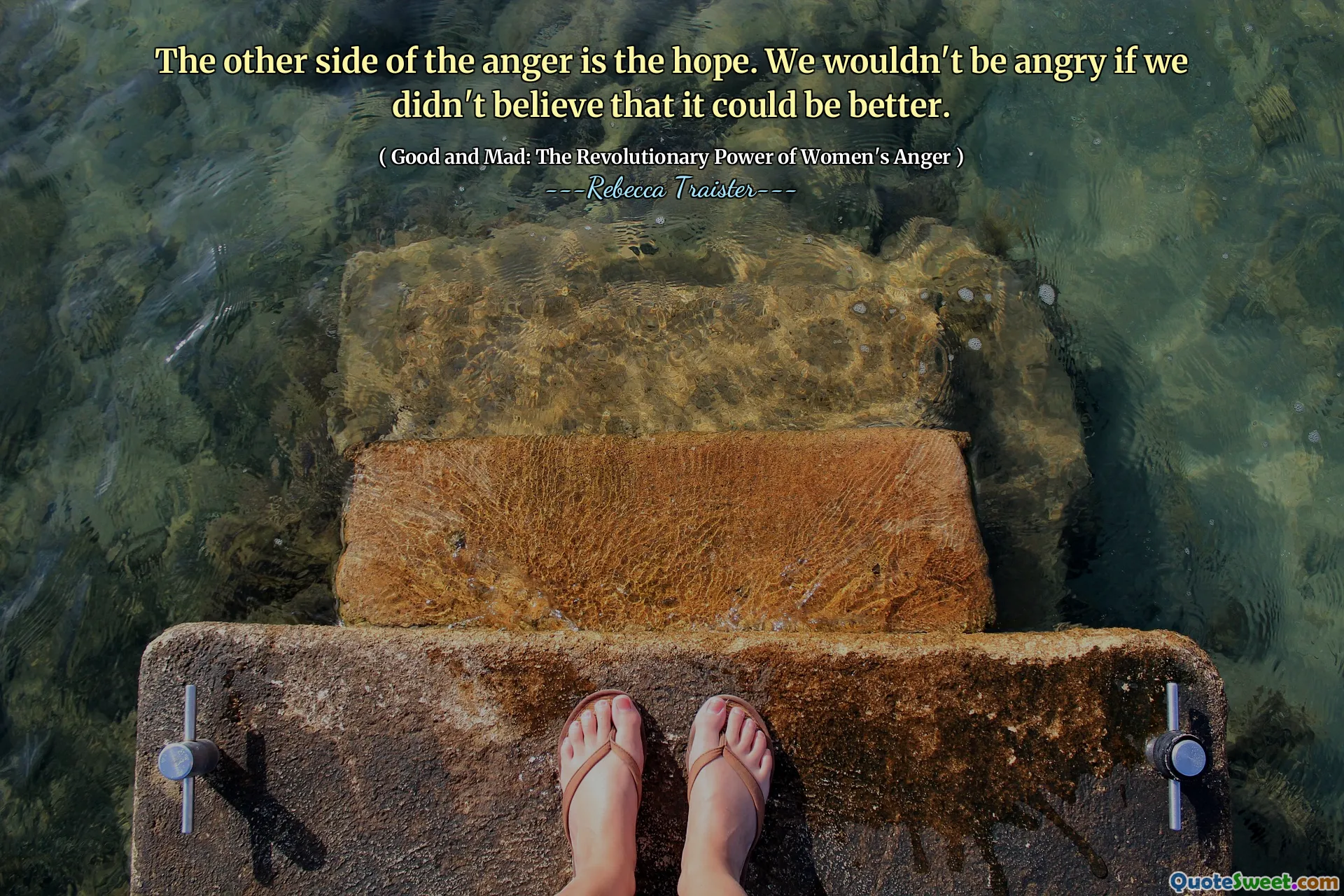
The other side of the anger is the hope. We wouldn't be angry if we didn't believe that it could be better.
The quote highlights a profound connection between anger and hope. It suggests that feelings of anger often stem from a desire for change and improvement in the world. This duality shows that anger can be a powerful motivator for social change, reflecting a belief that circumstances can and should be better than they currently are.
In "Good and Mad: The Revolutionary Power of Women's Anger," Rebecca Traister explores how women's anger is a response to injustice and inequality. This anger is not just a negative emotion; it embodies a deeper hope for a more just and equitable society. Through this lens, anger becomes a catalyst for action and empowerment, driving women and others to advocate for the changes they wish to see.











